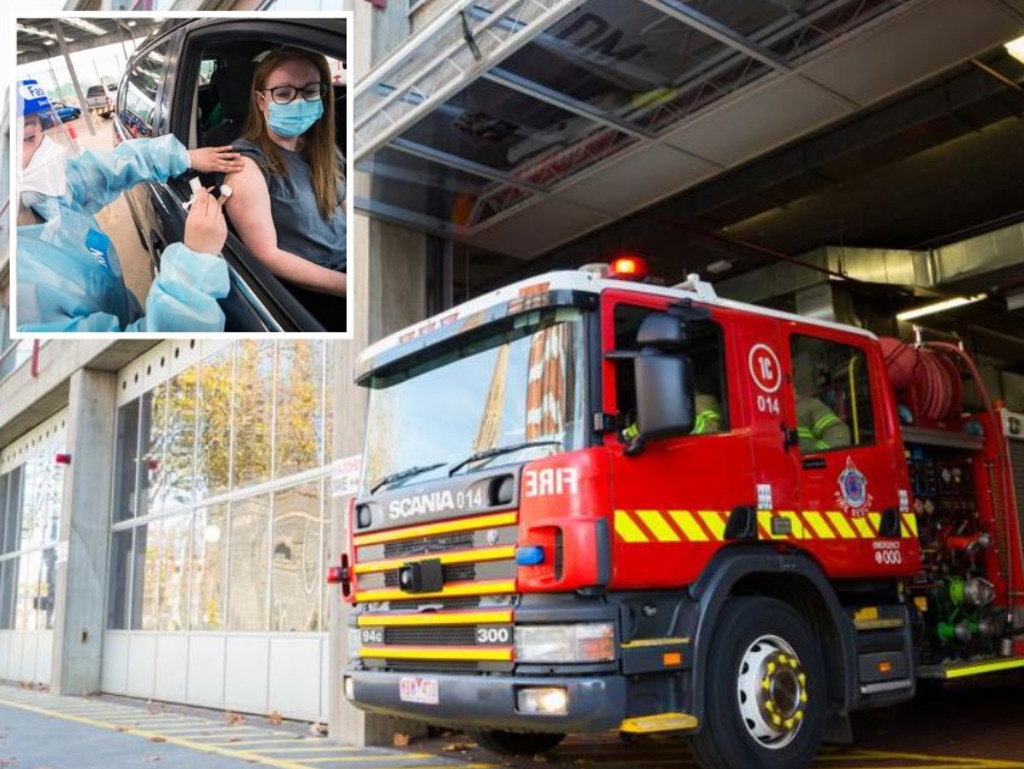Hindsight is great, but we don’t need it for Covid post-mortem

There is no evidence the community as a whole has learned a single lesson from the Covid debacle. Victoria had the longest lockdown on earth. Yet voters re-elected the same government, with an increased majority.
A society that does not prioritise the trilogy of virtues – freedom, accountability for consequences and merit – is a society in decline.
The readiness of Australians to downplay the importance of these virtues is the reason we tolerated the longest lockdowns in the world. It is the reason that on key objective measures of societal flourishing (labour productivity and life expectancy), Australia is going backward.
The report notes: “Mistakes were made, and those mistakes were costly and inflationary.” The inquiry found “trust in governments and in science has waned as a result of the Covid-19 pandemic responses”. It adds: “Rebuilding community trust and maintaining it needs to be an immediate and ongoing priority.” It explicitly notes some “human rights were poorly justified … and disproportionate to the risk”.
Yet not a single person or institution has been held accountable. This might be forgivable if the mistakes were excusable. They weren’t. And they were obvious at the time.
Hindsight is a wonderful thing but there is no need to resort to it in relation to Covid. About eight weeks into the pandemic it was clear the virus presented a material risk only to the aged. Smart countries objectively interpreted this data, protected the old and imposed no human rights restrictions on the population at large.
We sacrificed the young to protect the old. Instead of making intelligent, proportionate decisions based on empirical data, our governments emoted. Chief health officers called the virus a “beast”; premiers imposed a “ring of steel” to prevent people from travelling; police commissioners labelled people who opposed the restrictions as “tinfoil hatters”.
The logical part of the brain is simply not influenced by such utterances. But the reality is most Australians abdicated their ability or willingness to think clearly and reflexively accepted government retorts and commands: lockdown premiers had more than 80 per cent support.
Much of the media fawned over lockdown premiers and belittled people who questioned their necessity or proportionality. The human rights industry – which has its largest base in Victoria – exercised only one right: the right to silence. Neighbours informed on neighbours.
Paradoxically, the only people or institutions (at least in Victoria) that refused to allow their intellect to be swamped by the emotion of the masses and criticised the government for its human rights violations were those who opposed legislated rights charters. These charters do nothing except give self-serving activists the power to prioritise their subjective preferences (such as privacy) over the greater good of the community.
The most disappointing aspect of the Covid episode is that society has learned nothing from the collective capitulation into groupthink. More than ever, society is at the mercy of well-organised emotive causes and campaigns.
This is because the bulwarks of the rule of law, prosperity and social cohesion are now drowned out by the outrage industry.
In the personal and political arenas, feelings are now more important than facts; truth is now in the eyes of the beholder and words have more significance than actions.
The Covid debacle could not have occurred in a society where citizens were committed to clear thinking, an understanding of the importance of individual freedom and acceptance that in any decision-making calculus certain consequences outweighed speculative ones.
The momentous harm stemming from stripping an entire population of their basic freedoms was always going to be far worse than any potential lives saved from this carnage.
The same rationality deficits that allowed the Covid tyranny to go unchecked have not improved in the wider community.
To me, as a lawyer, it is incomprehensible that in the year 2024, following the Covid fiasco, that the government is nowseeking to stifle free speech (with “disinformation” legislation) and is considering the introduction of a human rights charter – just like the one in Victoria during Covid.
The main fallacy of the Covid report is that a key focus is on restoring trust in the government. The irony is that it is precisely this tendency that led the community to accept the damaging lockdowns. Smart societies don’t trust governments. Instead, they hold governments to account after making their own independent assessment of government performance. Government performance should be measured only by the extent to which it enhances the net concrete flourishing of the community.
Societies that instead prioritise the observance of fashionable causes or commitment to fine words can only further diminish.
Mirko Bagaric is a professor at Swinburne University of Technology.
More Coverage
 The readiness of Australians to downplay the importance of these virtues is the reason we tolerated the longest lockdowns in the world
The readiness of Australians to downplay the importance of these virtues is the reason we tolerated the longest lockdowns in the world




The Covid-19 response report released this week will do nothing to protect Australians from future government paternalism and overreach. The Australian population failed in its overwhelming support of draconian human rights abuses, which were enforced by excessive criminal sanctions.